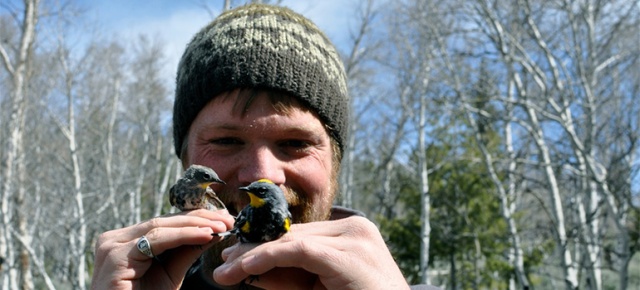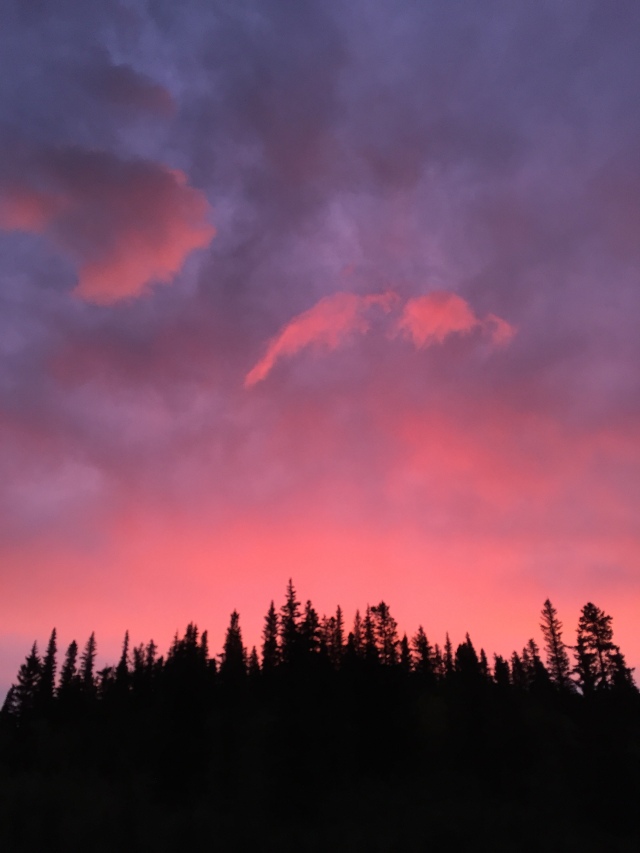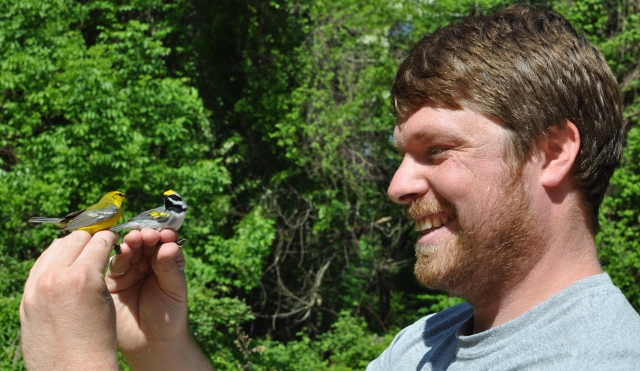
Welcome to the next installment of How Molecular Ecologists Work! This entry is from Dr. David Toews, Banting Postdoctoral Researcher at Cornell University. David’s uses genomic data in combination with phenotypic, geographic, and behavioral data to ask questions about the evolution of birds.
Location: Cornell University and Cornell Lab of Ornithology
Position: NSERC Banting Postdoctoral Researcher
Current mobile device(s): iPhone 6
Current computer(s): MacBook Pro 15” Retina with as much RAM as possible
What kind of research do you do?
Evolutionary and hybridization genomics / molecular ecology. In practice, my work is now divided three ways: 1) molecular work, mostly prepping libraries for Illumina sequencing (recently whole genome resequencing and reduced representation ddRAD) 2) bioinformatics and analyzing Illumina data and 3) collecting blood samples from birds in wild populations.
Can you use one word to describe the way you work?
Focused
What specific strategies do you recommend for running (or establishing) a lab?
Not really applicable at this point!
What apps/software/language/tools can’t you work without (Python, Dropbox, Geneious, etc.)?
R (!), Papers, Word, Adobe Illustrator, Keynote, OnePassword
Where do you work with data (personal computer, lab computers, cluster, etc.)?
Personal computer and cluster

Besides your phone and computer, what gadget can’t you live without and why?
My magic track pad (a terrible name!), secondary monitor, and Retina display are a MUST
Can you estimate what percentage of time you spend on the following categories in a given week?
10% Research-grant writing
25% Research-manuscript writing
40% Research-in the Lab, analyzing data, in the field
10% Teaching
10% Meetings/Email (committees, project meetings, etc.)
5% Outreach
What is your best time-saving shortcut/lifehack?
General answer: Answer emails right away – I am a believer in a kind of “email zero” (with flagging).
Less general answer: I love making figures. I find base graphics with R plus Adobe Illustrator is the most efficient method.
Super nerdy answer: having a keyboard shortcut that sends script text straight from TextWrangler to the Terminal is a lifesaver.
How do you stay organized (to-do lists, digital reminders, etc.)?
Mac Mail with Flagging; iCal and digital reminders
What do you listen to while you’re working (music, kids yelling, the hum of a supercomputer)?
Music (currently the new Radiohead album on repeat)
What are you currently reading?
American Gods by Neil Gaiman (reading goes much faster while I am in the field)
What is your sleep routine like?
When I am in the lab / office I am usually in bed by 11:30 – 12pm, and I am also a late starter – up at 8:30 and into work a bit before 10am. However, in the field we are up at ~4:30am, work until noon, afternoon nap, and then in bed by 8:30pm.
What career advice would you like to give to our readers?
For me, life trumps school and/or work, and this rule is an important part of work-life balance for me. I generally don’t work on evenings or weekends, but when I do it is usually because I am extra excited about analyzing some new data that has just come in, or working on a draft of a paper with a glass of wine. I realized in grad school not to try to compare my working habits to other students. In particular, working hours do not always equate to work ethic or productivity. Part of the reason I wanted to stay in academia was that I knew better than anyone else when and how I work best, and this responsibility is one of the perks of our field. I also try not to put off things that I don’t want to work on, because it can be easy to excessively procrastinate on those things. Finally, I very much enjoy some of the core aspects of our discipline, namely writing papers and coming up with creative ways to display data. If you don’t already, finding ways to enjoy these aspects of the job can make everything much easier/more enjoyable.
Thanks David! Next week: Sarah Hird, (new) Assistant Professor at the University of Connecticut


